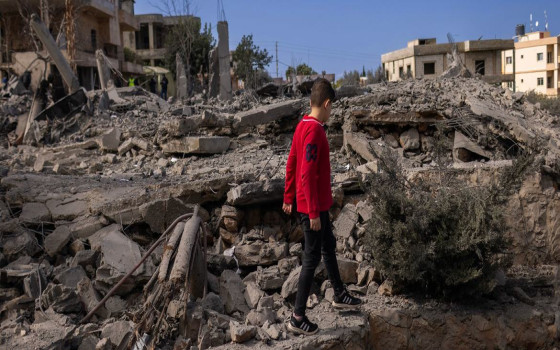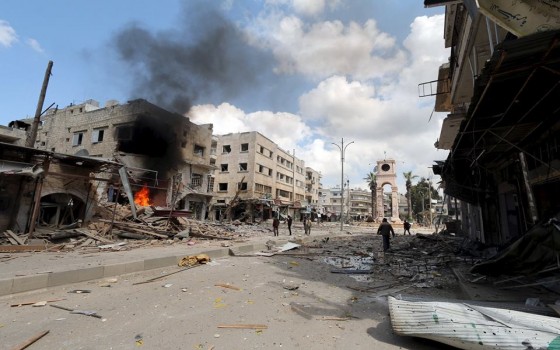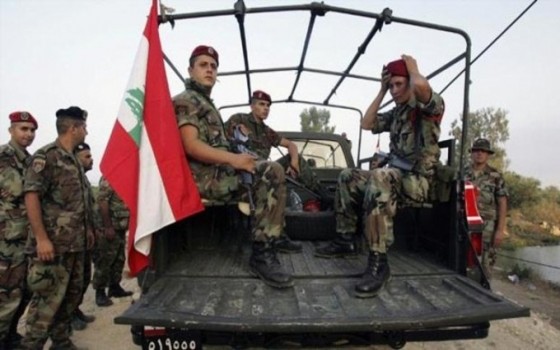
Lebanon: Expanded humanitarian appeal to support those affected by the crisis during the winter months

- Europe and Arabs
- Wednesday , 8 January 2025 9:58 AM GMT
Beirut - New York: Europe and the Arabs
The United Nations and the Government of Lebanon have issued an extension of the flash appeal for Lebanon worth $371.4 million, with the aim of providing life-saving assistance over the next three months to civilians affected by the recent conflict and the ongoing humanitarian crisis, including Lebanese citizens, Syrian and Palestinian refugees, as well as migrants in the country.
The extension covers the period between 25 January and March and builds on the original flash appeal launched last October, which aimed to raise $426 million. The extended appeal will complement the Lebanon Response Plan - which serves as the basic framework for humanitarian responses and stabilization in the country - by addressing immediate humanitarian needs. According to the UN daily news bulletin, a copy of which we received,
Priorities include food aid, winter supplies, emergency repairs, protection of civilians, and addressing gaps in health, water and education infrastructure.
During the announcement yesterday, Tuesday, at the Grand Serail in Beirut, Lebanese Deputy Prime Minister Saadeh Chami said that his government is committed to leading a coordinated, transparent and fair response, adding: “Our goal is to focus together on meeting urgent humanitarian needs in conjunction with longer-term recovery planning efforts, efficiently and effectively.” But the scale and scope of this crisis exceeds available resources, which necessitates international support to sustain and expand response efforts.”
The conflict, which began in October 2023 and escalated to devastating proportions between September and November 2024, has killed more than 4,000 people, injured 16,000 others and displaced more than a million people in Lebanon. Even after the cessation of hostilities, hundreds of thousands of people are now struggling to return to their homes amid widespread destruction of buildings, infrastructure and essential services.
The UN Humanitarian Coordinator in Lebanon, Imran Riza, said additional funding is urgently needed not only to support life-saving efforts, but also “to prevent further deterioration of an already dire situation.” He said that while the cessation of hostilities offers hope, “more than 125,000 people remain displaced, and hundreds of thousands face enormous challenges in rebuilding their lives.”
While Environment Minister and Government Emergency Committee Coordinator Nasser Yassin stressed the importance of humanitarian assistance, he said that Lebanese institutions and the public sector also need significant support “To prevent the collapse of basic services and livelihood sectors, and to meet the urgent needs of the population.” He added that municipalities and local authorities also urgently need urgent funding to maintain their operations, “given the burdens and responsibilities they have provided and the heavy costs and losses they have borne in the war.”
As Lebanon continues to deal with the consequences of the conflict, the Lebanese government and the humanitarian community have urged the international community to step up its support for the response. OCHA said that sustainable funding and resources are essential to achieve stability, provide assistance to those in need, and enable Lebanon to recover from this crisis, “which is considered the most difficult in its recent history.”
Liberal deployment continues in the south
In related news, the Cessation of Hostilities Implementation Mechanism Committee met at a UNIFIL site in Ras al-Naqoura, chaired by US Deputy Assistant to the President Amos Hochstein and US General Jasper Jeffers, with the participation of representatives from France, the Israeli and Lebanese armies, and UN officials. The group discussed technical military plans for a gradual withdrawal of the Israeli army from the entire area south of the Litani River and the deployment of the Lebanese army, starting from the west and moving eastward.
A joint statement from the US and French embassies in Lebanon and UNIFIL stressed that the Lebanese army “is the sole institution for the defense and security of Lebanon, and the Cessation of Hostilities Implementation Mechanism Committee is working closely with the Lebanese army commanders to support their actions.”
In a press conference in New York, UN spokesman Stephane Dujarric confirmed that UNIFIL supported the redeployment of the Lebanese Armed Forces to positions in Naqoura and Alma al-Shaab yesterday and today after the withdrawal of Israeli forces. He said that the Israeli army remains present in other locations in UNIFIL’s area of operations, “but preparations for a gradual withdrawal in parallel with the increased deployment of the Lebanese Armed Forces in southern Lebanon are ongoing.”
Mr. Dujarric said that the UN peacekeeping force continues to coordinate with both parties with the aim of de-escalating the conflict and supporting the full implementation of Security Council Resolution 1701.












No Comments Found